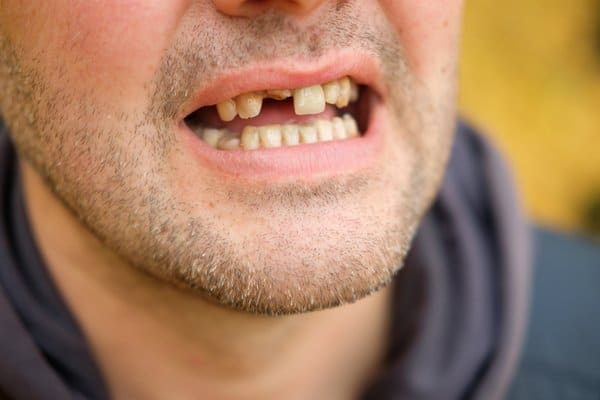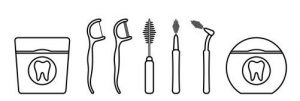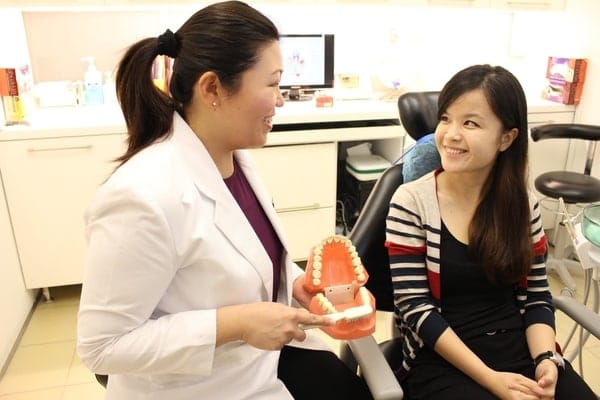Today, we can easily find information on investing in our retirement or getting financial protection through insurance. However, the same can’t be said for finding out how to invest in our oral health, which is a vital gateway to nutrition and health. As a result, tooth loss is higher in Singapore compared to other countries, although it can be prevented if you invest effort in oral health early.
Tooth loss can be socially and economically costly—one ends up paying for dental treatment, dentures or implants. It also prevents you from enjoying your meals and eating properly, as well as creating social embarrassment.

Therefore, I’m grateful I had the opportunity to be trained as a periodontist (gum specialist). It allows me to assist patients in maintaining their set of natural teeth when it’s still not too late to battle the loss of dental bone, which is the eventual sequelae for patients suffering from gum diseases.
Hence, I’m going to explain how you can invest in long-term oral health by developing good habits and seeking treatment early.
How do I prevent teeth or gum disease?
Gum disease often stems from simply having poor habits in personal oral hygiene. Thus, an essential element in preventing gum diseases, is simply to practice good, consistent habits in oral hygiene. Dental treatment is never too expensive if one chooses prevention.
There are a few key things needed for good oral and gum health and they do not cost a fortune.
1. Brush Your Teeth the Right Way
- Use a soft toothbrush — Choose a toothbrush with soft bristles. A hard toothbrush may damage your gums instead.
- Adopt the correct technique for brushing teeth — Brush your teeth in small, circular motions, at a 45-degree angle to the gums.
- Quality time spent when brushing teeth — It is not just about how frequently you brush your teeth, but rather how much time you spend efficiently in removing dental plaque from teeth. You should brush your teeth for two minutes, spending 30 seconds per quarter of your mouth.
2. Use Interdental Aids
 Interdental aids can be either dental floss or an interdental brush. Make sure you use them every night to clean the gaps between your teeth.
Interdental aids can be either dental floss or an interdental brush. Make sure you use them every night to clean the gaps between your teeth.
3. Eat the right foods
As you probably already know, eating lots of sugary goods frequently can damage your teeth.
Aside from that, having a balanced diet is good for your overall health. It’s a great investment to prevent many other diseases such as diabetes or heart conditions.
This affects your dental health too, as conditions such as poorly-controlled diabetes can worsen existing gum disease.
4. Visit the Dentist Regularly!

Some people are more likely to have oral health problems than others, be it due to poor oral hygiene or genetics. Hence, you should visit the dentist regularly from a young age, so you can ensure your teeth and gums stay healthy as you age—thus avoiding that dreaded root canal!
The dentist will professionally remove plaque (the sticky, bacteria-laden coating around your teeth) and hardened calculus to keep your mouth healthy and clean.
They also assess your mouth for signs of decay or disease, so you can get treatment early for any problems. This is especially important because lots of dental problems are “silent”, and it’s often too late to save the tooth and gums when pain sets in. Gum loss is irreversible, thus prevention is important.
What if I have Teeth or Gum Diseases?
Just as there is more than one way to brew coffee, the same applies to dental treatments. There are many options to treat or manage your dental issues if you have any.

Therefore, I cannot emphasise enough that it is imperative to find a dentist who truly cares and is patient-centred. They should be able to provide relevant options and manage expectations with patients, based on clinical evidence.
This is key to establishing trust, and like every successful marriage, trust plays a significant role in building a long-lasting dentist-patient relationship.
I do see my patients for a long time as gum disease is a chronic disease; many of my patients have become friends as we grow together over the years.
Ultimately, clean your teeth effectively to build a level of insurance for your teeth. It is never too late to be proactive in acquiring a new habit, and invest in your oral health. Start today.




